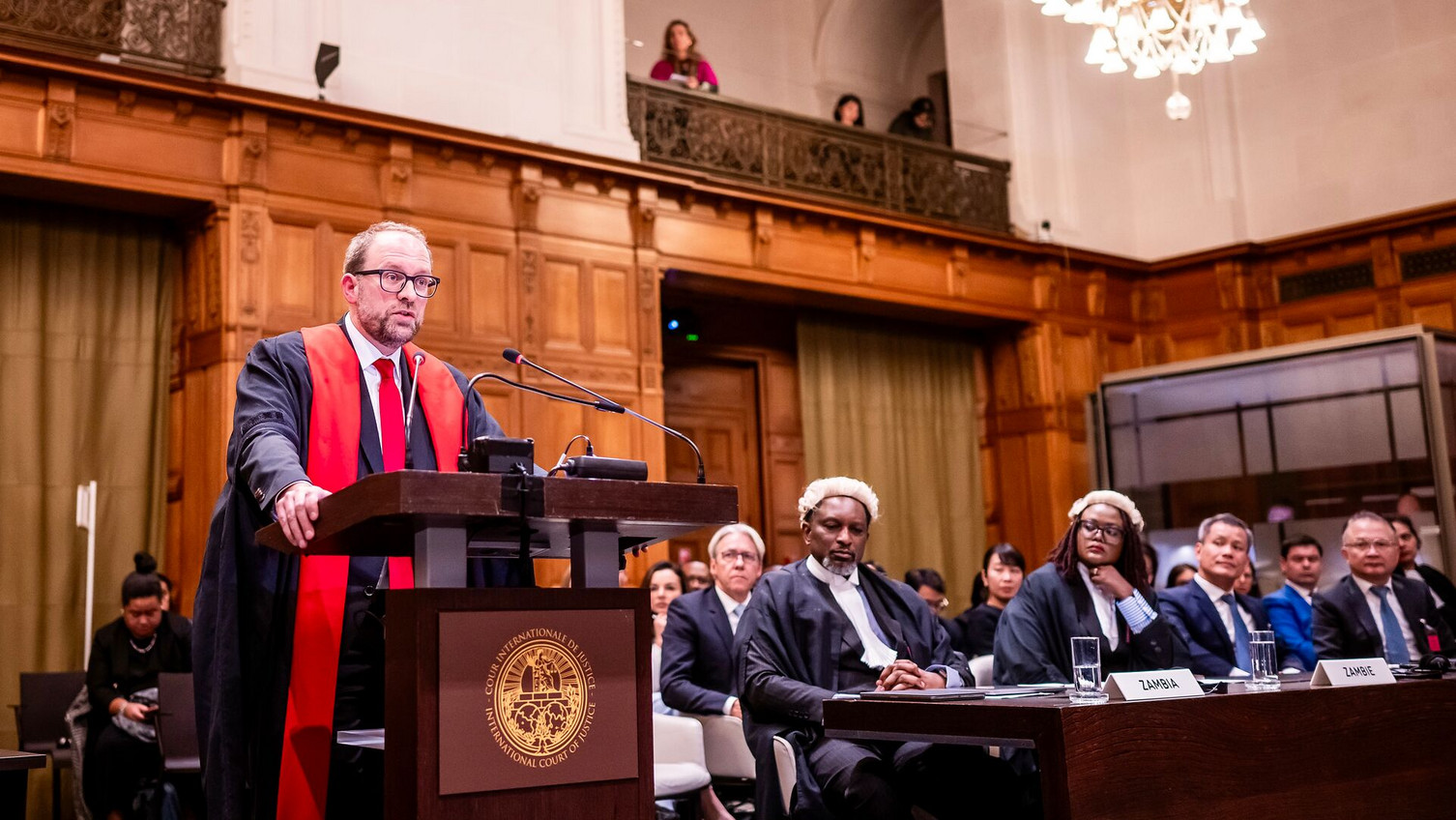International law expert Christian Tams elected chair of renowned professional association
2025-10-29 The professor for International Law and Dispute Resolution is the new chair of the European Society of International Law. In an interview, Prof. Dr Christian Tams explains why there can be no peace without international law and how even US President Trump benefits from it.
The United Nations are celebrating their 80th anniversary this year. But despite the UN Charter's prohibition of violence, countries are still invading their neighbours. How effective is international law?
I understand your objection. The situation is certainly not satisfactory, but the prohibition of violence is the central norm of modern international law: no state may invade its neighbour militarily. This rule, enshrined in the UN Charter since 1945, was revolutionary. Borders should no longer be the result of conquest. We must not forget that Germany's borders – like those of France and many other states – were historically created by wars.
Have fewer wars actually broken out since the prohibitions of violence entry into force?
Yes, that is the case: the number of wars between states has declined noticeably since 1945.
Nevertheless, international law lacks a global enforcement authority. How does it become effective?
There is no police force for the whole world, as we know it in the nation state. But international law regulates how international organisations and states can respond to breaches of the law: states can impose sanctions, for example. The discussion about the expropriation of Russian central bank assets or the withdrawal of trade privileges shows that international law is indeed capable of action. Military aid also plays a role. For example, Germany is allowed to supply weapons to Ukraine because Ukraine is the victim of aggression that violates international law and has the right to self-defence, whereby it can support other states.
Shouldn't the goal always be peace?
Yes, and it is: every peace agreement is based on international law – peace treaties, border regulations and rights of return are always formulated in the language of international law.
Is the United Nations more than a moral authority in this regard?
The UN usually plays a mediating yet central role. It can intervene directly, for example through peacekeeping forces, as demonstrated by the ‘blue helmets’ in crisis regions. And it provides the diplomatic space in which states can negotiate solutions: the broad outlines of Trump's 20-point plan to end the Gaza war were agreed between states, but negotiated in the corridors of the UN building during the major annual meeting in New York.
You yourself work at the International Court of Justice and represent Germany, among others, in Nicaragua's lawsuit alleging that Israel violated international law in the Gaza war. How do states actually file lawsuits?
States cannot simply ‘meet in court’ as we know it from everyday national courts. Access to the International Court of Justice is limited: the ICJ can only take action if states recognise its jurisdiction. That is why court proceedings in an international context are the exception rather than the rule.
What effect do the ICJ's judgements have?
When the Court is involved, it can play a very important and visible role. Cases such as South Africa's lawsuit against Israel in the Gaza conflict or against Myanmar for the genocide of the Rohingya show that proceedings before the “world court” have enormous political and diplomatic impact. If the Court recognises a serious violation of law or genocide, international moral and political pressure arises that states cannot easily escape – or only at a considerable cost.
Thank you very much for talking to us!
Prof. Dr Christian J. Tams, LL.M. (Cambridge) is Professor of International Law at King's College London and Professor of International Law and Dispute Resolution at Leuphana University. The lawyer studied in Kiel, Lyon and Cambridge and is an internationally recognised expert in international law, particularly in matters of state responsibility, international courts and dispute resolution. In addition to his research, he regularly advises states and international organisations in proceedings before the International Court of Justice and in arbitration proceedings.
The European Society of International Law (ESIL) is the largest European professional association in the field of international law. Since its foundation in 2004, it has provided a forum for academic discussion of current issues in international law and for networking between researchers and practitioners at European level.
ESIL is represented at Leuphana University Lüneburg by several members who also help shape the Centre for European and International Law (CEIL): Prof. Dr. Jelena Bäumler, Professor of Public Law and International Law with a focus on Sustainability, Prof. Dr. Till Patrik Holterhus, Professor of Constitutional and Administrative Law, International Public Law and Comparative Law, and Prof. Dr. Valentin Schatz, Professor of Public Law, European Law and Public International Law, in particular Environmental Law and the Law of the Sea.

